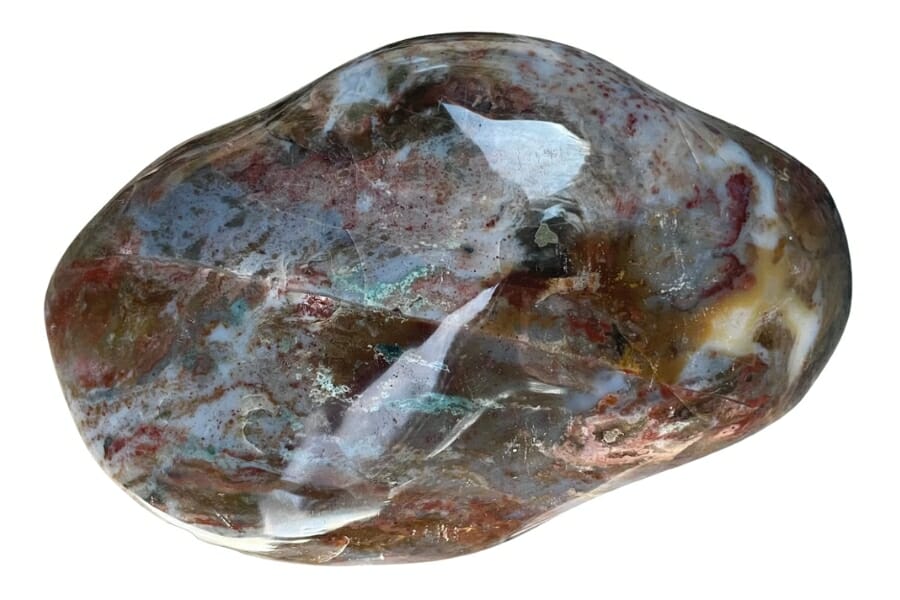Finding agate in New Mexico can be challenging for people who have never done it. The state’s large, varied, and geologically exciting landscapes can be hard to understand without a knowledgeable guide or accurate map.
Many newcomers wander through deserts, mesas, and mountains, hoping to find these semiprecious gemstones. However, they often end up with bags of common rocks because they think they’ve found the coveted agates.
With our help and patience, finding the perfect New Mexico agate with its mesmerizing patterns and colors can be a rewarding experience instead of a pointless one. Join us as we delve right into it!
What is New Mexico Agate?
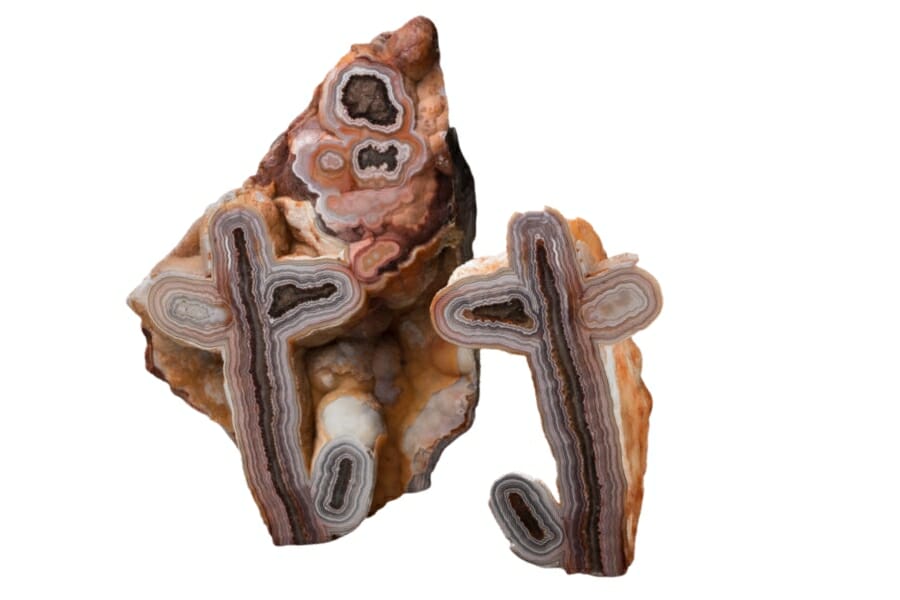
Agate is a chalcedony type, a cryptocrystalline form of silica made up mostly of quartz. It’s known for its fine grain and bright colors. It often comes in bands of different colors that look like the rings of a tree trunk.
These bands can be of various colors, from soft pastels to deep, rich tones. They are caused by the gradual buildup of impurities in the silica gel. Agate can also have spots, patterns, or inclusions of other minerals, which add to its unique and often complicated look.
The stone is clear and has many different patterns that make it a favorite among people who like gemstones and jewelry makers. The different colors and patterns emerge from changes in the mineral content of the groundwater during its formation process.
We’ve created an article about how much agates are worth for more information.
Moss agates
Even though it is called “moss agate,” it does not contain natural moss. This beautiful type of chalcedony is known for its beautiful inclusions resembling moss, ferns, or other plants.
Manganese, iron, or other minerals usually form these dendritic inclusions, which resemble branching shapes in semi-transparent stone.
The inclusions’ rich green, brown, or reddish patterns stand out against the chalcedony’s transparent, milky, or bluish background, making a striking contrast that can look like a small forest or landscape inside the stone.
Yes, moss agates can be found in New Mexico. The state, known for its diverse geology and rich mineral deposits, has several locations where rockhounds can find various types of agates, including moss agates.
Fire agates
Fire agate is a chalcedony with beautiful iridescence and mesmerizingly plays with light and color. The shimmering look of this unique gemstone comes from the way light bounces off of thin layers of iron oxide or limonite crystals inside the stone.
Light through these microscopic layers creates a sparkling show of reds, greens, golds, and blues that looks like a plunging fire. Because of how it looks and its rarity, fire agate is a popular gemstone among collectors and people who like to wear jewelry.
With its rich geologic diversity and history, New Mexico is indeed one of the regions in the southwestern United States where fire agate can be found. Particularly in the southern parts of the state, there are several known fire agate localities where enthusiasts have successfully uncovered these radiant gemstones.
Blue lace agates
Blue lace agate is a variety of chalcedony admired for its delicate, lace-like patterns and soft, calming blue hues. These patterns often appear as light blue stripes and swirls, with bands of white, creating an intricate and soothing appearance.
The stone emanates gentle energy, often associated with tranquility, grace, and serenity. Its ethereal beauty and therapeutic properties have made blue lace agate a favorite among gemstone lovers, jewelry designers, and crystal healing enthusiasts.
Blue lace agate is not abundant in the state of New Mexico.
The key factors in our recommendations are:
- The deep experience and understanding of our team about the area
- Recommendations from local groups and clubs
- How easy it is to get the a particular location
- Safety and potential hazards when collecting
- Weighing private and public locations
- The ability for both experienced and novice agate enthusiasts to find great samples
With these factors in mind we’ve been able to put together a fantastic list that just about anyone can use!
DON'T MISS OUT ON ANY GREAT FINDS!
While you're out searching for Agates you're going to find A LOT of other interesting rocks and minerals along the way. The last thing you want to do is toss out something really interesting or valuable. It can be easy to misidentify things without a little guidance.
We've put together a fantastic field guide that makes identifying 140 of the most interesting and valuable rocks and minerals you will find REALLY EASY. It's simple to use, really durable, and will allow you to identify just about any rock and mineral you come across. Make sure you bring it along on your hunt!
The Best Spots To Find Agates in New Mexico
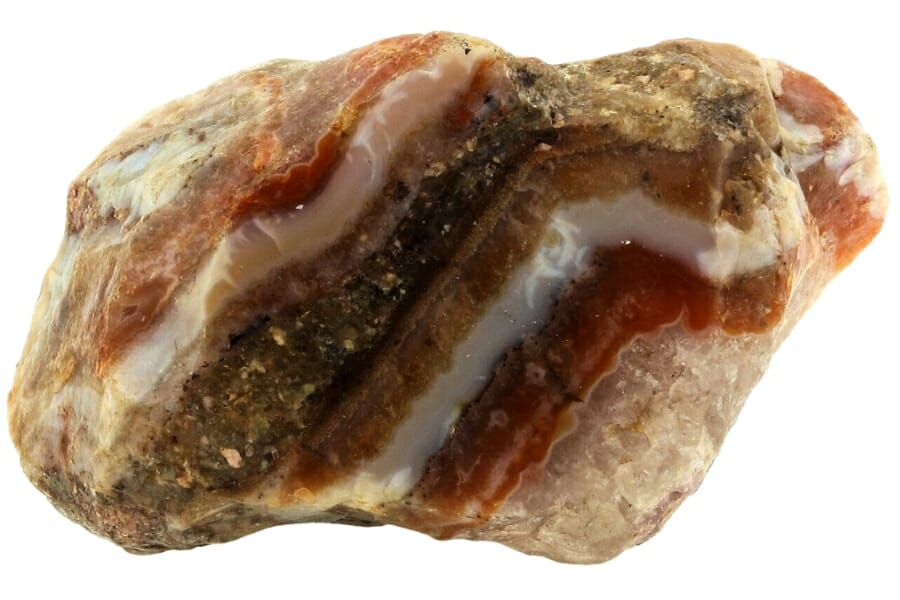
We’ve listed our recommendations in the state where you can find agate specimens. There are also several exciting locations to find gems in New Mexico, but not all contain agates.
Always Confirm Access and Collection Rules!
Before heading out to any of the locations on our list you need to confirm access requirements and collection rules for both public and private locations directly with the location. We haven’t personally verified every location and the access requirements and collection rules often change without notice.
Many of the locations we mention will not allow collecting but are still great places for those who love to find beautiful rocks and minerals in the wild without keeping them. We also can’t guarantee you will find anything in these locations since they are constantly changing.
Always get updated information directly from the source ahead of time to ensure responsible rockhounding. If you want even more current options it’s always a good idea to contact local rock and mineral clubs and groups
Caballo Mountains
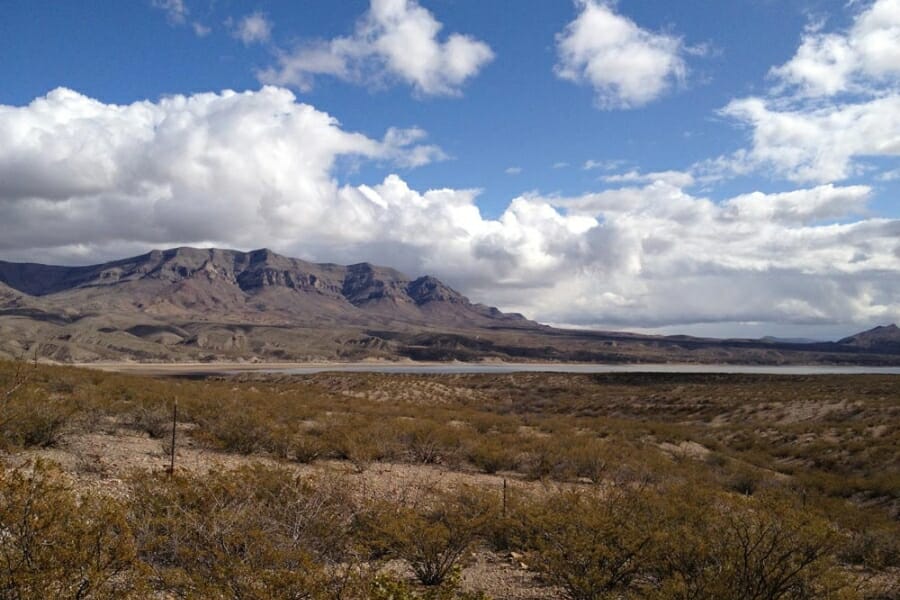
The Caballo Mountains, situated in southern New Mexico, are a striking range that extends roughly north-south for about 23 miles. These mountains are part of the larger Basin and Range Province, reflecting a rich geological history of volcanic activity and subsequent erosion.
The diverse range of mineral formations provides a fertile ground for different agate varieties, each telling a tale of the Earth’s transformative processes for years. Additionally, the presence of chalcedony, a microcrystalline form of quartz, in the vicinity indicates good prospects for locating agate nodules.
Before bringing your agate finds back home from New Mexico, ensure you know the most up-to-date rules about collecting there.
Where we found agates in the Caballo Mountains
Located on the east side of the Caballo Mountains, Red Hill is a site known for its agate deposits. Agates found here are often red or pinkish and may display beautiful banding or other patterns.
Cimarron Canyon State Park
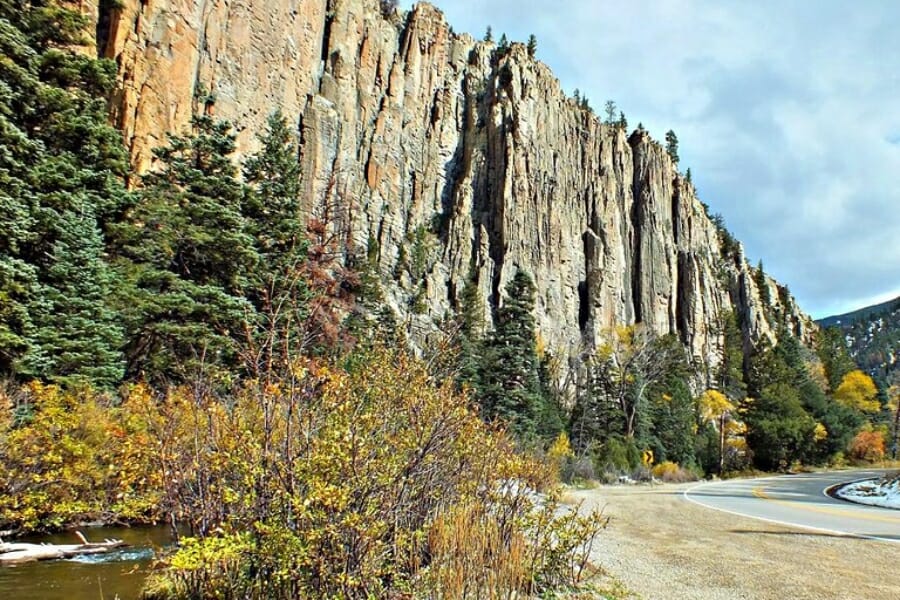
Cimarron Canyon is a stretch of rugged beauty formed by the Cimarron River cutting through the soft volcanic rock of the Sangre de Cristo Mountains. This steep canyon boasts dense forests, cascading streams, and abundant wildlife, making it a haven for nature enthusiasts.
Geologically speaking, Cimarron Canyon’s past volcanic activity and millennia of erosive forces have left a treasure trove of minerals in its wake. The diverse mineral composition in the region implies a good chance of discovering agates with unique patterns and colors.
For those with a keen eye and a bit of persistence, Cimarron Canyon offers a breathtaking backdrop for exploration and the promise of unearthing geological wonders like agates, further enriching the experience of this picturesque location.
Where we found agates in the Cimarron Canyon State Park
The Cimarron River flows through the park and is a logical starting point. Check the exposed and eroded sections of riverbanks, as well as the gravel and pebble beds. The erosive action of the river can uncover agates that have been hidden within the surrounding rock.
Some of the hiking trails within the park also traverse geological formations. The sides of these trails can sometimes reveal rocks and minerals, including agates, especially in areas where erosion or past human activity has exposed the underlying rock.
Hatchet Mountain
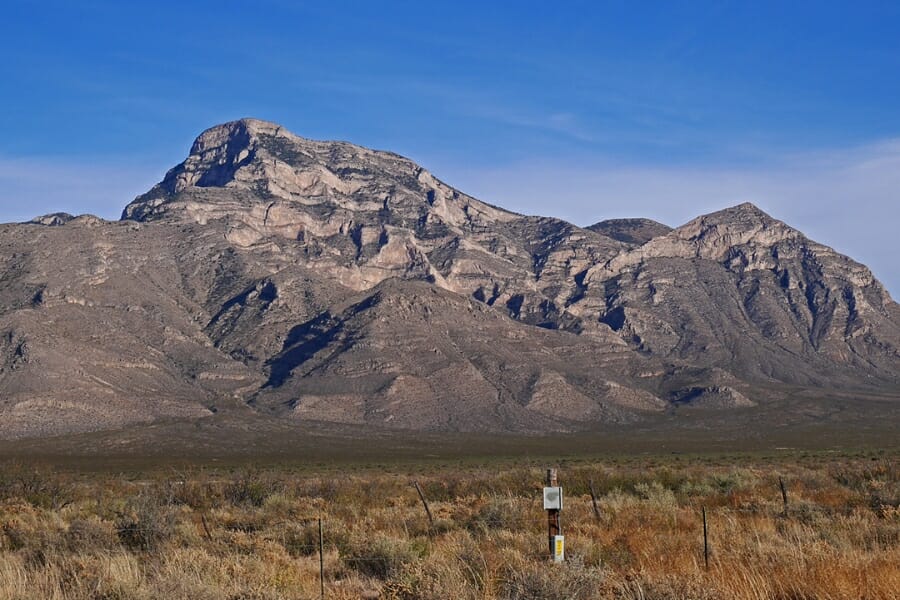
Hatchet Mountain is a testament to the region’s vibrant geological tapestry. With its diverse mineralogical composition, this mountain is a beacon for geologists and rock enthusiasts.
The intricate blend of volcanic and sedimentary rock layers within the mountain suggests a history of varied geological processes, from volcanic eruptions to the sediment accumulation of ancient seas.
Such a mix is often conducive to forming agates; indeed, the mountain offers pockets of these semi-precious stones. The agates here have formed in the cavities of volcanic rocks and have been revealed by millennia of erosion.
Where we found agates in the Hatchet Mountain
Places, where the mountain’s rock has been naturally eroded by wind and rain might expose agates and other minerals.
Nacimieto Mountains
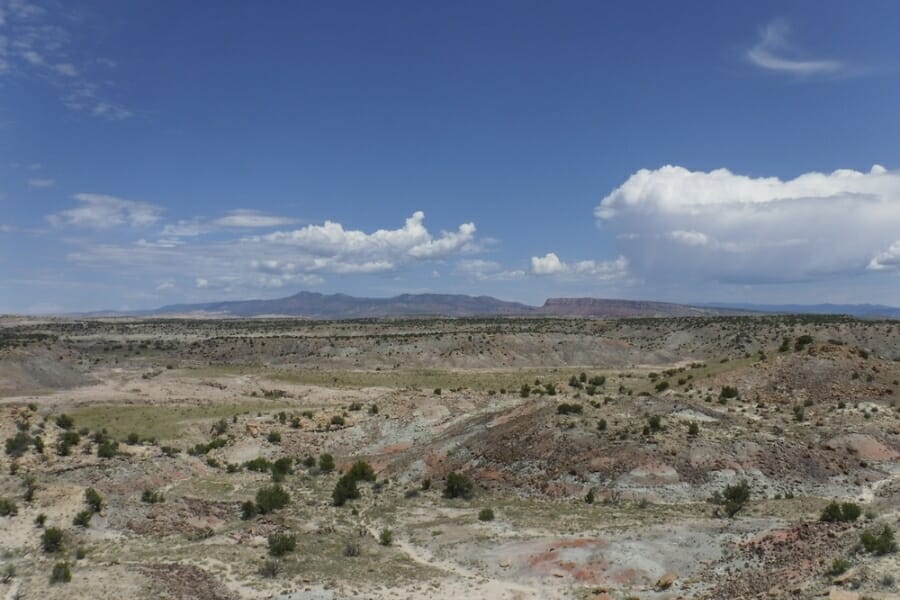
Nacimiento Mountain epitomizes the American Southwest’s geological wonders. Rooted in a complex geological past, this mountain showcases layers of rock that chart a history stretching back millions of years.
The mountain’s unique interplay of volcanic and sedimentary processes makes it a particularly fertile ground for agate hunting. Weathering and erosion have further worked to expose these concealed gems, creating opportunities for discovery.
For rockhounds, the mountain’s charm isn’t just in the promise of finding agates but also in witnessing the dramatic display of Earth’s ever-evolving story. Each banded pattern or color variation within an agate echoes an epoch of geological transformation.
Where we found agates at Nacimiento Mountain
Historically, the Nacimiento Copper Mine, located in the mountain, was an active site. The region around this mine is known to have various minerals, and it’s plausible that agates could be among them.
San Francisco Mountains
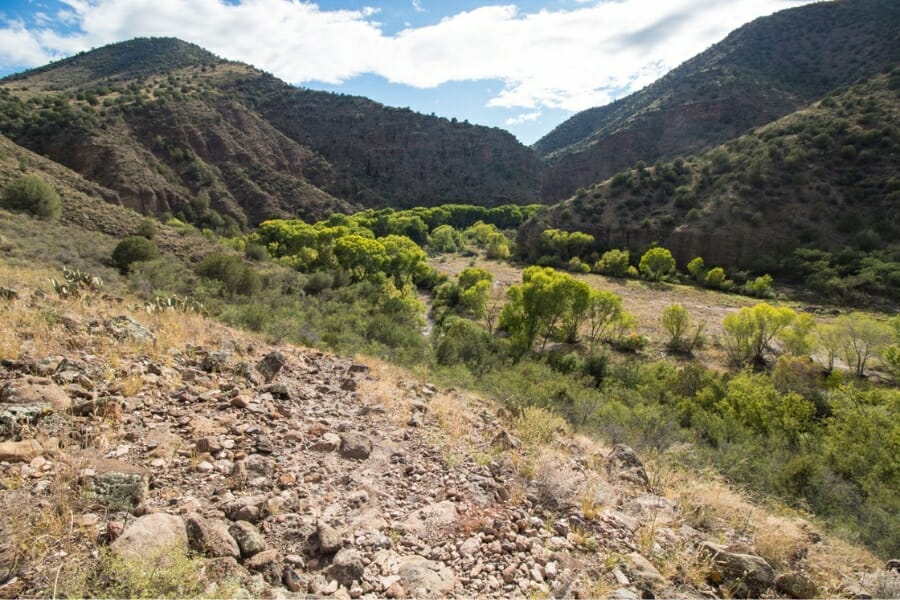
San Francisco Mountain is a monument to the region’s vibrant geological canvas. Composed of a mosaic of rock types, this mountain encapsulates the story of ancient tectonic movements, volcanic eruptions, and the passage of time.
The combination of the mountain’s geology and the erosive forces of the region means that agates can be found in exposed outcrops, dry riverbeds, and other eroded areas where the mineral treasures have been unveiled.
Where we found agates in the San Francisco Mountain
Since agates are often associated with volcanic activity, look for areas where volcanic rocks are exposed. These can sometimes contain cavities filled with agates.
Some trails might also expose agates. Check along trail sides and in exposed rock areas.
Other Great Places To Find Agates in New Mexico
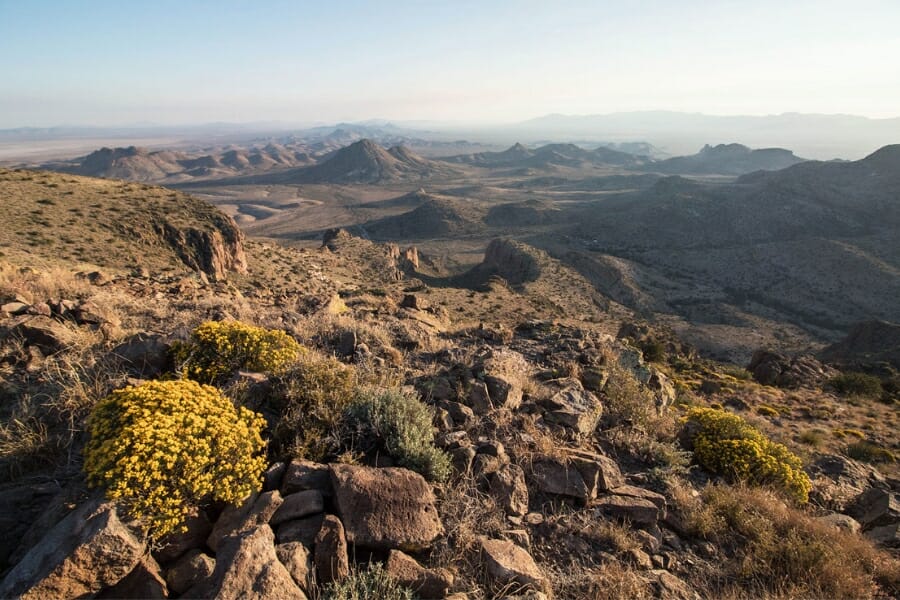
We’ve already given you our best recommendations on where to find agates in New Mexico. Since we want you to be successful in your search and help you further, we’ll suggest more places where you can locate them in the state. We’ve listed them by county below:
Our recommendations by county
| County | Location |
| Bernalilio | Rio Puerto Valley, all area gravels, surfaces, draws, and washes |
| Bernalilio | ALbuquerque area, in banks of arroyos leading towards the river and on adjacent ridges |
| Catron | Lee Russell and Kerr canyons, along way and area surfaces |
| Catron/td> | Turkey Flat gravels and surfaces |
| Catron | Around Elk Horn Park |
| Catron | In the widespread Plains of San Augustine in exposures of volcanic tuffs |
| Catron | Many regional localites in Luna area |
| Grant | Area surrounding Cap Rock Mountain |
| Grant | Alum Peak area surfaces |
| Hidalgo | Peloncillo Mountains |
| Luna | Little Florida Mountains |
| McKinley | Willow Springs |
| Rio Arriba | All area benchlands to Pedernal Peak |
| Sandoval | Regional draws and washes |
| Santa Fe | Mt. Chalchihuitl |
| Sierra | Mud Springs Mountains |
Additional areas you can find agates
Here are some more specific places where you can find agates. We want to help you find these beautiful stones because New Mexico is vast.
Fresh rock exposures
Fresh rock exposures offer an exciting prospect for agate collectors. These newly uncovered areas, whether from natural processes like erosion or human activities such as construction and mining, present a window into the Earth’s hidden geology.
Unlike weathered surfaces, which have been subjected to years of elemental wear, fresh exposures reveal rocks in their more pristine state, often showcasing minerals and gemstones that have remained concealed for millennia.
Streams and creeks
Streams and creeks, with their ceaseless flow and erosive power, stand as dynamic geological agents, constantly reshaping the landscapes they traverse. These waterways serve as natural conveyor belts for agate collectors, unearthing and transporting hidden gems from their origin points to more accessible locales.
As agates form within volcanic rock cavities, the surrounding softer rock gradually erodes, releasing these treasures. Streams and creeks expedite this process, washing away the eroded material and often revealing agates.
Washes and ravines
Washes and ravines, shaped by the intermittent yet powerful forces of water and erosion, offer a unique landscape for agate enthusiasts. As channels, they capture runoff from larger areas, directing water flow and sedimentary cargo through narrowed pathways.
This concentrated movement plays a pivotal role in revealing hidden geologic treasures. As water rushes through, it erodes the softer surrounding rock, potentially unmasking agates that have been encapsulated for ages.
Common Agate-Hunting Questions
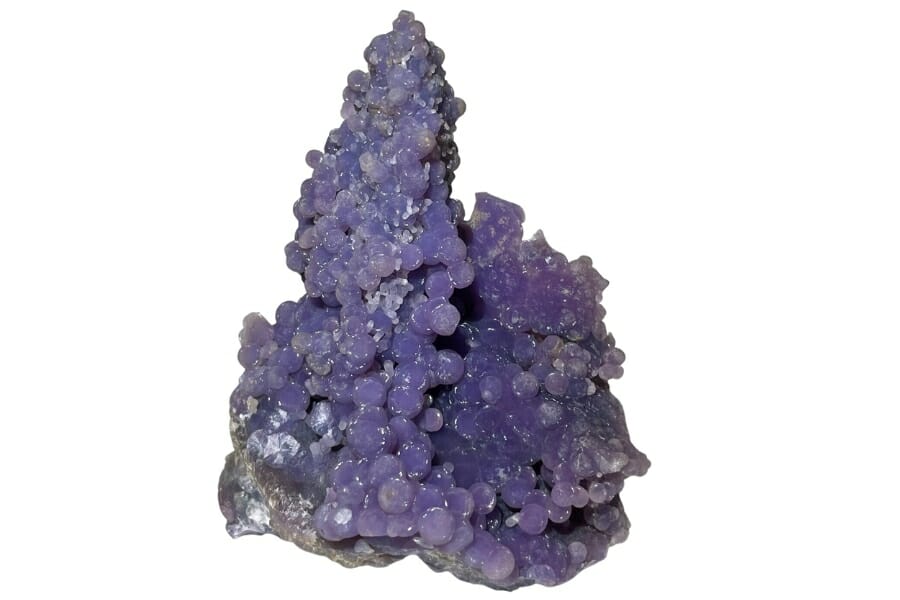
These are the most commonly asked questions when people visit New Mexico to look for agates.
Is it illegal to collect agate in New Mexico?
You can collect agates in New Mexico following all the rules and regulations. When you’re on private land, ensure you have the permission to enter and collect the specimens there.
The Best Places To Buy Agates In New Mexico
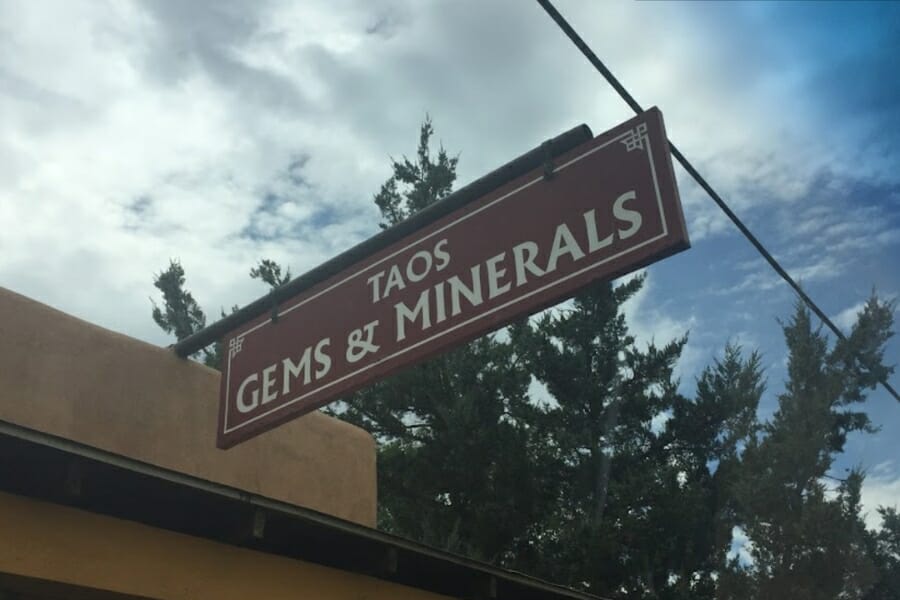
Not everyone likes spending the day outdoors just looking for agates under the heat. Sometimes, you only need one piece to add to your collection or give as a gift. Here are the list of rock shops in New Mexico where you can easily find agate specimens:
- Blanchard Rock Shop – 2972 US-380, Bingham, NM 87832
- New Mexico Rocks – 10000 Coors Bypass NW, Albuquerque, NM 87114
- Spanish Stirrup Rock Shop – 156 Hill Country Rd, Alto, NM 88312
- Taos Gems and Minerals – 637 Paseo Del Pueblo Sur, Taos, NM 87571
- Taos Rockers – 229 Cam De La Placita, Taos, NM 87571
If you have any recommendations for our list please leave a comment below!

